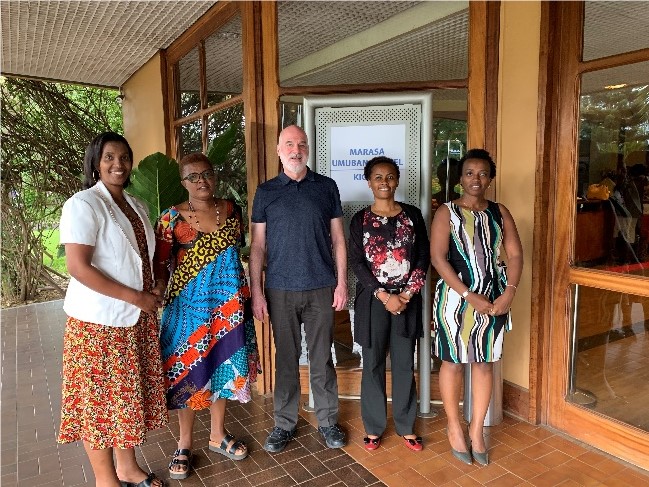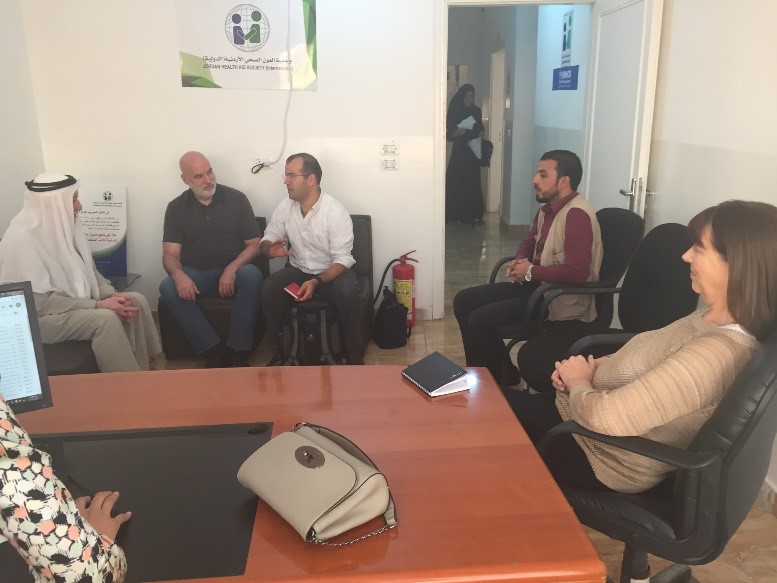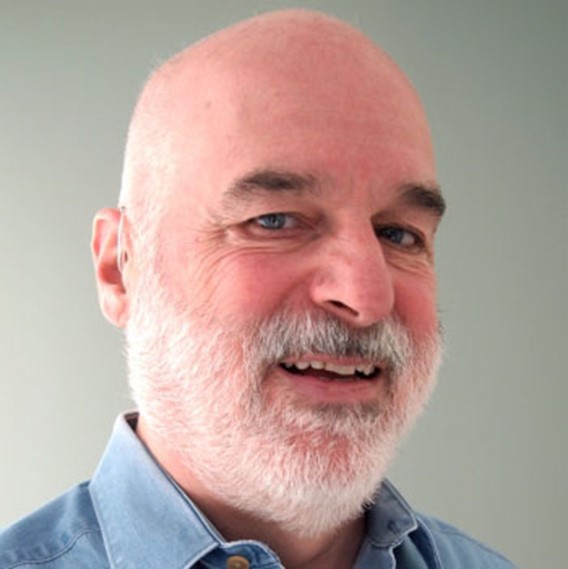John Parrish-Sprowl (Liberal Arts)
Applied Communication and SDGs 3, 10 & 17
Dr. John Parrish-Sprowl, PhD, is Director of the Global Health Communication Center (GHCC) and Professor of Communication Studies in the IU School of Liberal Arts. An active participant in community engagement programs and research, Dr. Parrish-Sprowl is dedicated to improving health and clinical communication for the greater good.
Dr. Parrish-Sprowl has served as a senior member of the Community Health Engagement Program (CHEP), World Health Organization (WHO) Roster of Experts for Social and Behavioral Change, and the Assembly of the National Communication Association. Additionally, he has worked on research projects from USAID, NIH, and private foundations. As an award-winning educator and consultant, Dr. Parrish-Sprowl is renowned for his expertise in international applied communication research for Universal Health Coverage (UHC), Malaria eradication, mitigating vaccine hesitancy through better communication, and mental health services in humanitarian settings.
Vaccine Hesitancy
 Within the context of the COVID-19 pandemic, the world witnessed the danger of widespread vaccine hesitancy. Dr. Parrish-Sprowl, in 2017, authored an article – “Vaccine Hesitancy Communication: What counts as evidence” - which analyzed the significance of how individuals attach value to evidence regarding the efficacy or danger of a vaccine.
Within the context of the COVID-19 pandemic, the world witnessed the danger of widespread vaccine hesitancy. Dr. Parrish-Sprowl, in 2017, authored an article – “Vaccine Hesitancy Communication: What counts as evidence” - which analyzed the significance of how individuals attach value to evidence regarding the efficacy or danger of a vaccine.
The article highlights patient-provider interactions as playing a significant role in addressing vaccine hesitancy. Dr. Parrish-Sprowl purports that the message is not the only factor that can persuade a hesitant patient to receive a vaccine; rather, the way in which the message is conveyed plays a significant role in alleviating anxiety and hesitancy among patients. When a patient receives a message through a conversation with the healthcare provider, the information (considered evidence) is processed depending on how the patient feels. If the patient perceives the conversation to be adversarial, this puts them in a state of mind which is reactive and/or defensive. When this happens, their brain processes the information slightly differently, making the patient less likely to count the message of the healthcare provider as valuable evidence. Therefore, Dr. Parish-Sprowl theorizes that communication research regarding vaccine hesitancy must include the nature of the conversation, rather than sticking to the message. This, in turn, will produce solutions which help healthcare providers have interactions that reduce vaccine hesitancy. By helping to break down misinformation, research of this kind can have significant impacts on improving the health and well-being of individuals, while also acting to bridge inequality between different communities.
WHO: Fighting Malaria
Malaria eradication, and improving vaccine uptake, has been key to Dr. Parrish-Sprowl’s work with the WHO. A 2019 WHO report on malaria eradication – in which Dr. Parrish-Sprowl was a contributor – highlights strategies utilized in the past to stem this disease, and the recommended course of action to eradicate it. The Global Malaria Eradication Program (GMEP - 1955 to 1969) eliminated malaria in many countries but a resurgence killed millions. Today, the WHO continues its work to eradicate the disease, with an emphasis on sub-Saharan Africa, a demographic where GMEP was not implemented. The action plan to which Dr. Parrish-Sprowl contributed, recommends customizing implementation within the context of each country.
 Another critical WHO project of Dr. Parrish-Sprowl was to develop the Global Action Plan (GAP) to improve influenza vaccine uptake. This 2016 report highlights the uniqueness of influenza vaccines which change annually due to mutations of the virus, and the importance of scaling vaccine production to match the ever-changing needs of influenza vaccines. However, the report highlights that an increase in vaccine production does not correlate with an increase in uptake of the vaccine. In this regard, the report highlights key communication strategies to address the emotions of patients, thereby hopefully increasing vaccine uptake.
Another critical WHO project of Dr. Parrish-Sprowl was to develop the Global Action Plan (GAP) to improve influenza vaccine uptake. This 2016 report highlights the uniqueness of influenza vaccines which change annually due to mutations of the virus, and the importance of scaling vaccine production to match the ever-changing needs of influenza vaccines. However, the report highlights that an increase in vaccine production does not correlate with an increase in uptake of the vaccine. In this regard, the report highlights key communication strategies to address the emotions of patients, thereby hopefully increasing vaccine uptake.
Addressing Mental Health Needs
Mental Health and Psychosocial Support (MHPSS) is a domain in the humanitarian health sector that focuses on providing mental health services to refugees. In many countries, refugees face intense psychological distress caused by stressors such as migration, war, and injury, and this can lead to long-lasting trauma. To such patients, MHPSS aids in the processing of trauma. In a 2020 case study, Dr. Parrish-Sprowl collaborated with two other experts to develop a system of intervention for a large Jordanian Healthcare NGO to address the mental health needs of staff and patients.
 A Communications for Whole Health (CWH) intervention framework, and a Communication Complex (CC) perspective were utilized. The CC perspective regards communication as more than the transfer of messages between individuals; rather, it focusses on the process, pattern, and perturbations that distinguish the dynamic linkages between humans and their environment. Human interaction is seamlessly intertwined with our biology and helps shape our health and well-being. The CWH intervention framework is an implementation of the CC perspective which aims to systemically integrate MHPSS services throughout primary healthcare settings, in contrast to the conventional view where MHPSS acts separately (or as an add-on) to primary healthcare. Between 2015 and 2017, Dr. Parrish-Sprowl and his team in the Global Health Communication Center (GHCC) designed and implemented the CWH and CC system at the Jordanian healthcare facility, producing noted changes in mental health and overall well-being outcomes among patients, and staff.
A Communications for Whole Health (CWH) intervention framework, and a Communication Complex (CC) perspective were utilized. The CC perspective regards communication as more than the transfer of messages between individuals; rather, it focusses on the process, pattern, and perturbations that distinguish the dynamic linkages between humans and their environment. Human interaction is seamlessly intertwined with our biology and helps shape our health and well-being. The CWH intervention framework is an implementation of the CC perspective which aims to systemically integrate MHPSS services throughout primary healthcare settings, in contrast to the conventional view where MHPSS acts separately (or as an add-on) to primary healthcare. Between 2015 and 2017, Dr. Parrish-Sprowl and his team in the Global Health Communication Center (GHCC) designed and implemented the CWH and CC system at the Jordanian healthcare facility, producing noted changes in mental health and overall well-being outcomes among patients, and staff.


